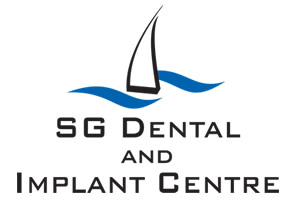Dental Implants For The New Year?
If you have missing teeth or are struggling with your dentures, now could be the time for that to change
Before we get into today’s blog, we would like to wish a happy New Year to all patients of Mike Allen’s Dental Practice here in Burton. We hope that you had a good break and had time to relax. Hopefully, no dental issues will have arisen during this time, but if they did, our practice is fully open again for appointments to help you resolve them.
So, onto today’s blog. A new year is a good time to take stock and make a few changes in our lives. One of the more significant changes that people make when it comes to their teeth is to finally replace the gaps in their teeth or to take the step to replace their dentures with dental implants. This treatment does require a degree of commitment as we will see shortly. The benefits certainly outweigh any temporary inconveniences caused though and will leave you with stronger, stable and a more permanent solution than your dentures ever could.
Why dental implants?
Teeth implants offer an almost permanent solution for missing teeth. We say ‘almost’ as, with good care, they can last for twenty years or more. As everyone is different, it is impossible to accurately forecast, but twenty years is a good length of time and, unlike dentures, you should not need to have them replaced during this period if you look after them appropriately.
Implants not only last a long time but they offer the nearest thing there is to a natural tooth. Unlike dentures and bridges, implants also offer a replacement tooth root. It is this that ensures their strength and stability which enables you to eat whatever you want without the worry that your teeth will move around. After a short time following the placement, you will very likely forget that you even have an implant and treat it like a natural tooth. Patients of our Burton dentists who have had this procedure, are usually very happy with the results.
The treatment – painful?
One of the biggest barriers for many people about this procedure is the ‘pain’ factor. Unlike other procedures, having an implant placed involves positioning it into the jawbone. Understandably, this raises concerns with a few patients. This procedure has been carried out for over fifty years though and has a very high success rate indeed, providing that you follow pre and aftercare instructions given to you by your dentist.
Is it a painful procedure? As you would expect with any invasive treatment, there can be a degree of discomfort and most of you will probably have experienced this even with a regular filling. Thankfully, the discomfort caused by placing the implant into the jawbone should not be more significant than you would expect with other dental procedures. The powerful local anaesthetic used by dentists these days is very effective and will help to minimise any discomfort you might feel. You may also experience some minor bruising and possibly swelling afterwards in that area for a short time but this will subside and can usually be managed with over the counter painkillers. If you have any concerns about having an implant placed, please arrange a consultation with one of our dentists who will be happy to talk to you about it.
Aftercare
Once your implant is placed into the jawbone, it will need time to heal and also to fuse with the bone. This process, known as ‘osseointegration’ takes approximately three months and you will be required to change your eating habits for the duration. Initially, you will need to eat a ‘soft’ food diet. Once the fusing has started to establish, you will be able to move to more regular foods and once the integration is complete, nothing that you normally eat will be off limits. It may be a little inconvenient for a short period of time, but the long term benefits are very significant indeed.
You will also need to stop smoking if you currently do. The failure rate of dental implants is very low indeed and most failures are due to patients not following the correct aftercare advice. Smoking greatly increases the risk of gum disease and this can weaken the bone into which the implant is placed, causing it not to bond properly.
Following your treatment, your dentist will provide you with the full information that you need to take care of your new implant and to ensure that it has a very long life ahead of it.
Whilst dentures and bridges offer a reasonably aesthetic replacement for missing teeth, neither fully offers the feel of a real tooth. Both require significantly more aftercare than implants which, once established, simply require a good cleaning regime, and both also may mean that you avoid certain foods because of difficulty when eating.
With the start of a new year, this could be the time to take action and finally have a set of teeth that you feel confident with. If you would like to discuss the possibility of replacing your missing teeth or uncomfortable dentures, why not arrange your initial consultation with us by calling Mike Allen’s Dental Practice on 01283 845345. We look forward to seeing you!
